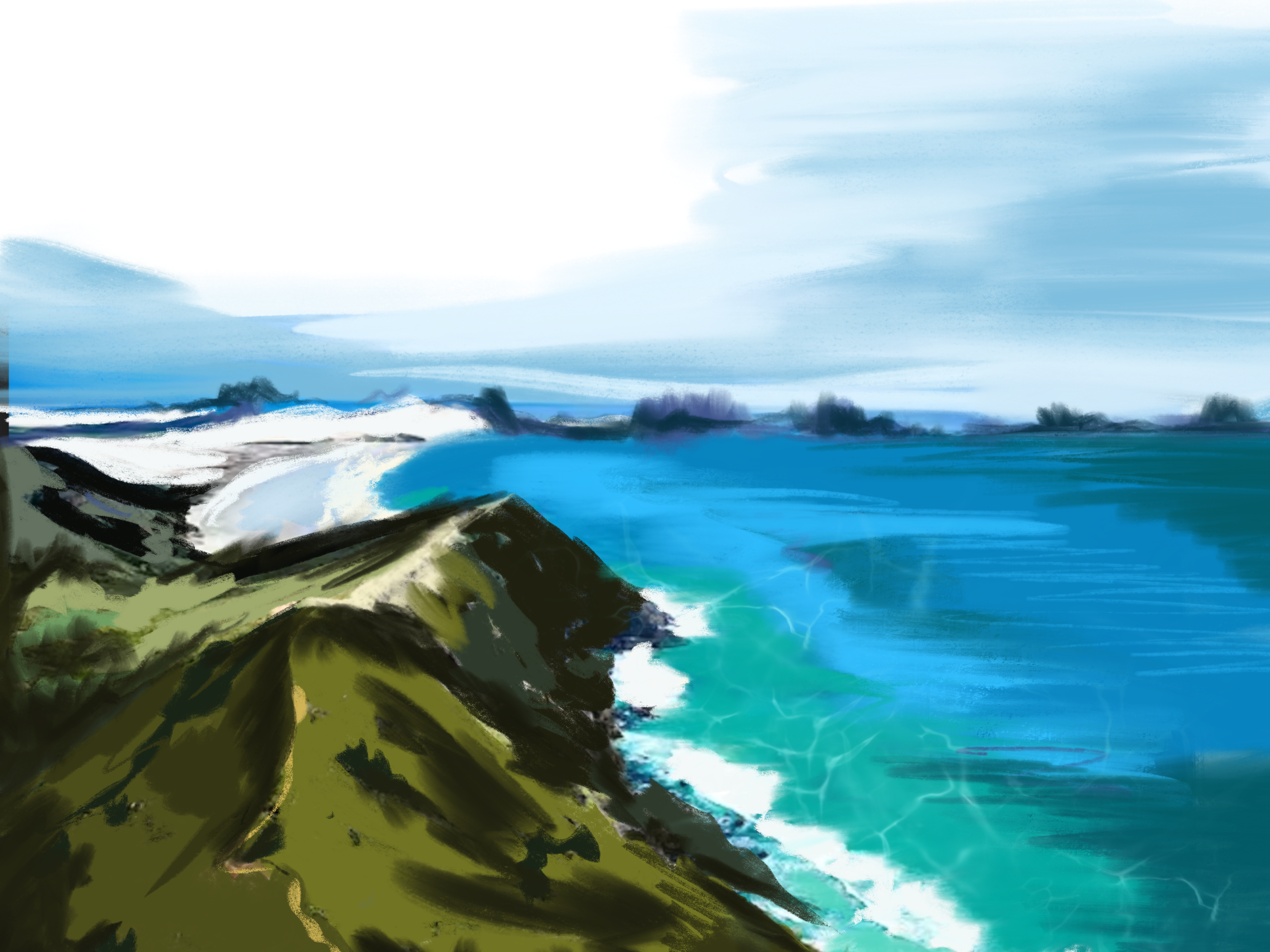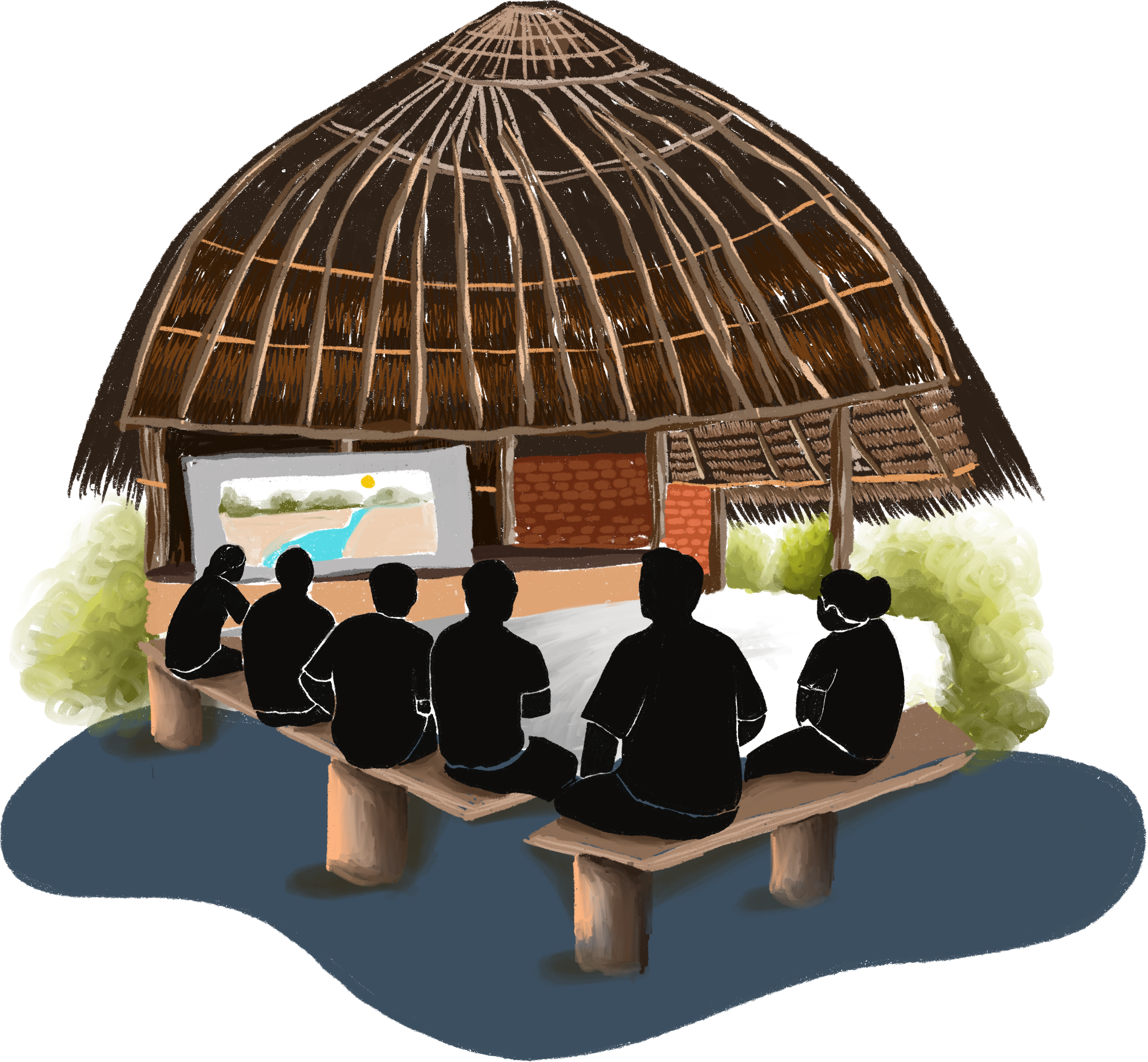Āhau: An indigenous community platform
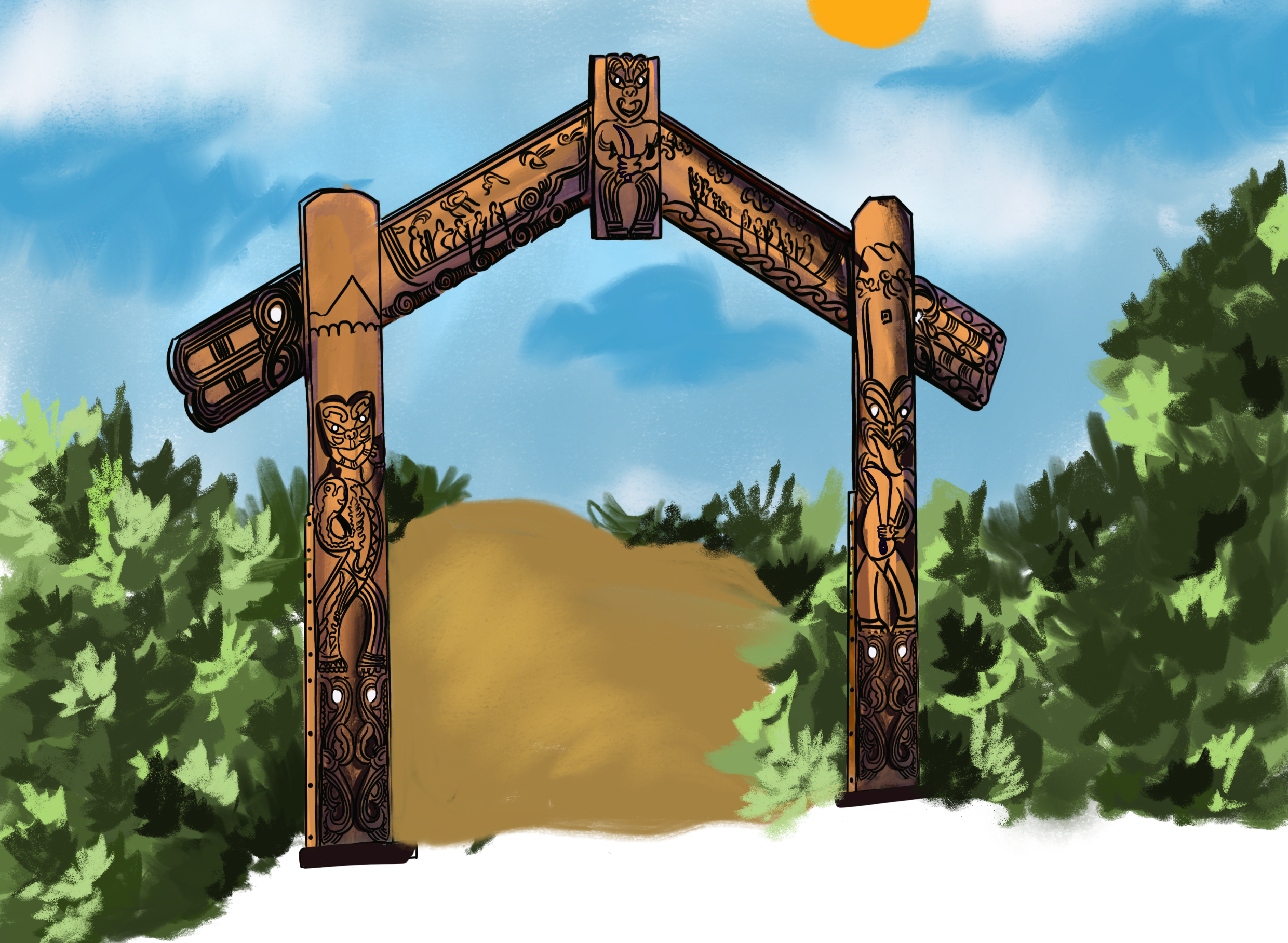

What is Āhau?
Āhau is a community archiving platform designed by the Māori people of Aotearoa New Zealand for sharing and preserving culture and identity. It helps tribal and family communities capture, preserve, and share important information, histories and media into digital archives and collections that are stored on community-run hardware.
Ahau is FOSS, free open source software. It has been built on top of the Secure Scuttlebutt protocol, an offline first, peer-to-peer protocol for sharing data between devices within a private network that’s hosted and managed by members of that community ensuring community information is private and secure.
Āhau was developed to support tribal communities and individuals to maintain their collective identity and connection with their cultural heritage and lands, especially for those communities where large populations of tribal members have migrated into urban areas and even other countries.
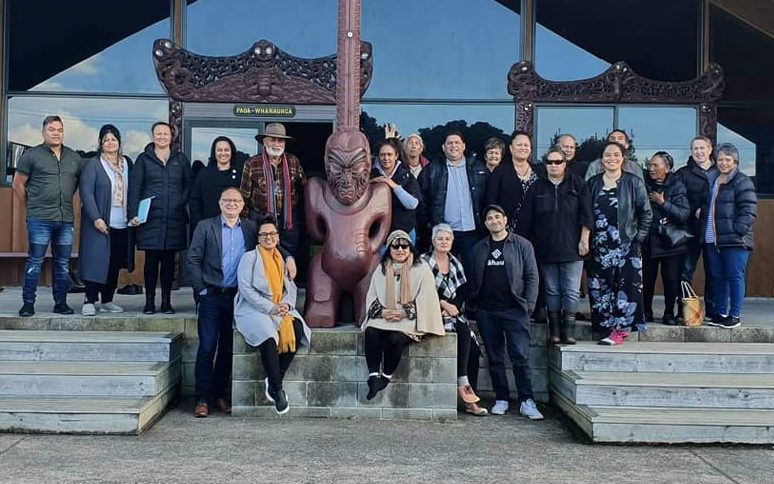
Why you might want to use Āhau
If you are part of a tribe, a family group, or a community that wants to keep a record of its members, their histories and connections, or if you want to create a shared archive to preserve and share your community’s stories and cultural practices in digital form, then Ahau could be a good tool for you.
Ahau has three key features of its application
1. Genealogy charts
Using Āhau to build genealogy charts helps tribal communities to better identify, connect and develop the relationships of their community members
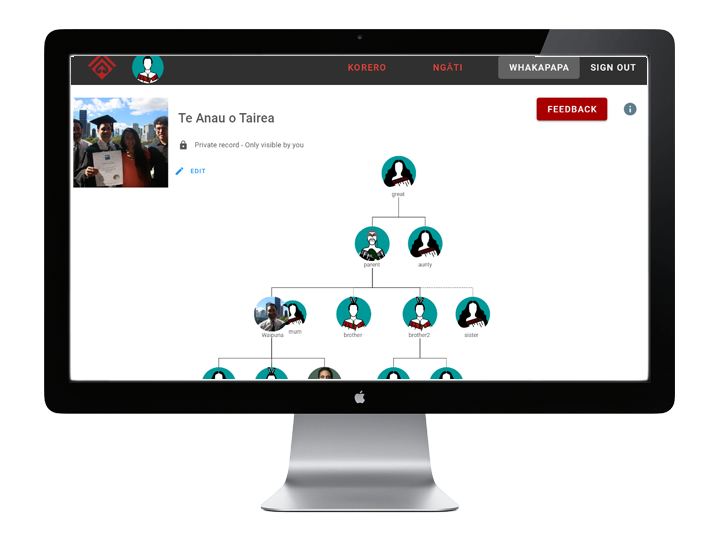
2. Cultural archiving
The Cultural Archiving feature provides community members the ability to share stories and media in a digital repository. Stories can also be sorted into different collections. This is helpful whether you want to share photos, recordings, files, or stories about customs, practices, places, and people.
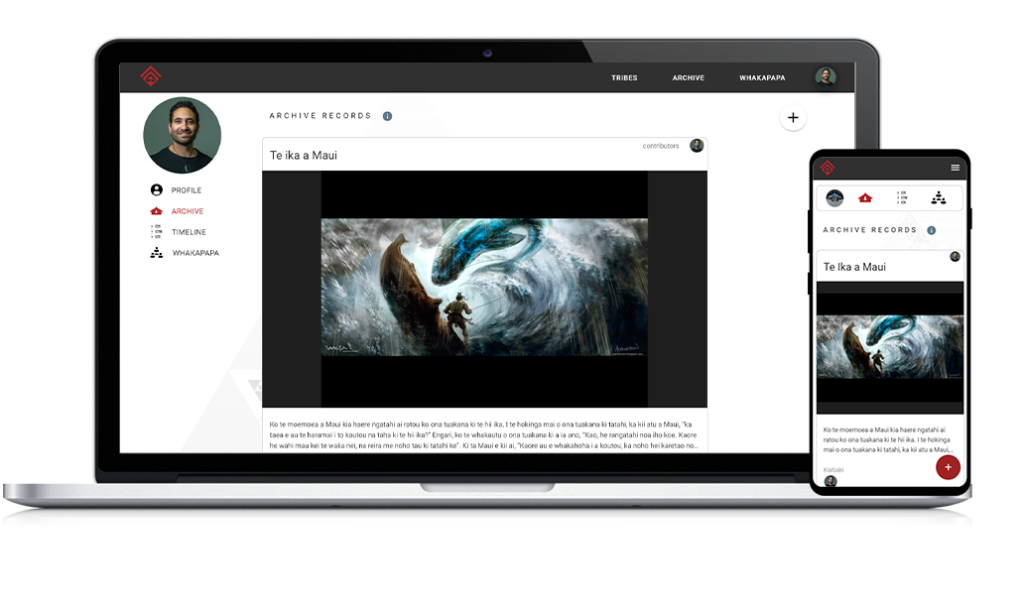
3. Community database
The community database is useful for tribal administrators to keep a record of their members and some of their contact and personal information. Communities are able to create their own data model which enables them to record the information that is relevant to them.

Āhau is built to address these points
Preserving cultural heritage
Colonisation, urban migration and globalization of indigenous communities increasingly threaten traditional knowledge, systems and practices. Āhau has been designed to support the preservation and transfer of traditional information and cultural heritage for current and future generations. Āhau is particularly useful for urban indigenous populations who have been disconnected from their culture and identity and for the purposes of coordinating future collective action as your community continues to grow and develop.
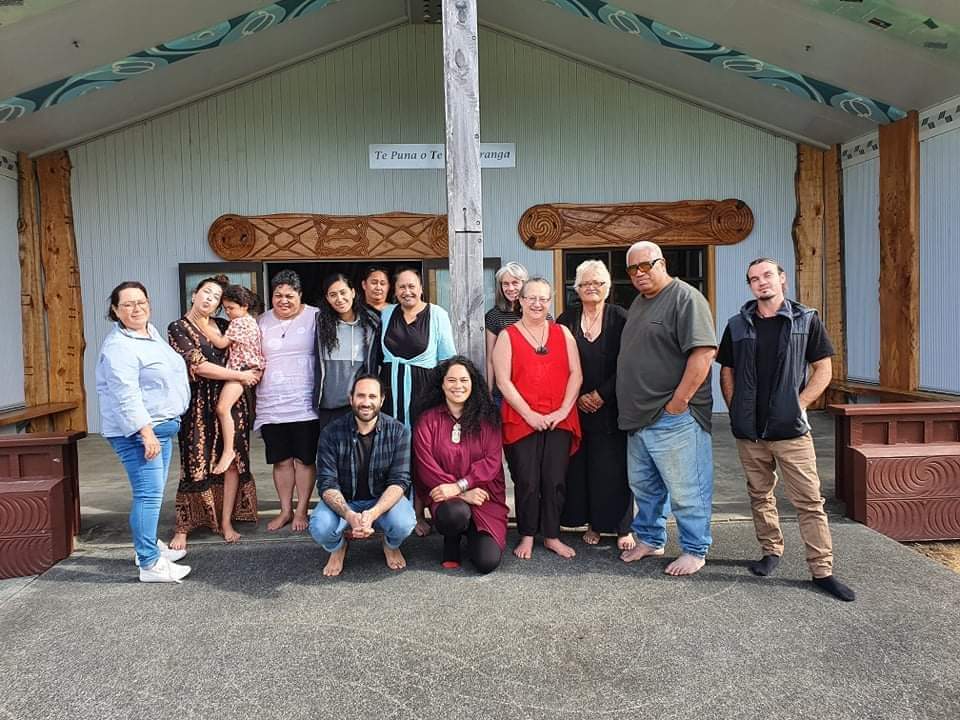
Support community collaboration
Organizing and coordinating a community can be a challenging administrative task. One thing that can help is the development of a list of community members or a tribal registry. Ahau has been designed to make creating your community members list easy. By having your community members contribute their knowledge of family members to genealogy records you can quickly identify your community members’ names and information.
Āhau plans to develop more community collaboration features in the future.
Indigenous lead technology
The Āhau application has been developed by indigenous communities (of Aotearoa, New Zealand and the Cook Islands) to address environmental challenges faced by these indigenous communities and reflect the cultural traditions and practices for passing on traditional and sacred knowledge. This is represented in the values and features of Āhau.
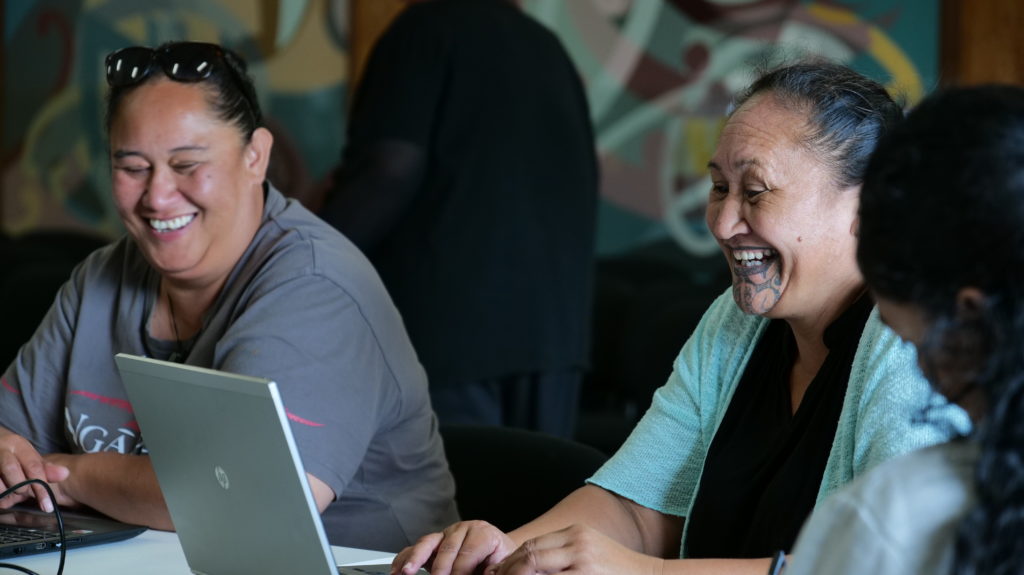
Āhau wānanga/training event - Photo courtesy of Jason Taylor
Our values lead us to share this technology. So, we make it available to other indigenous communities globally and invite their collaboration to develop it to meet their needs. This could be anything from translating the language, changing the look, or even building new features. If this is something that you would like to explore please feel free to get in contact with the team at Āhau via the website www.ahau.io
Data Sovereignty
Data Sovereignty refers to a communities ability to own, manage and control their own data. In Āhau your information is protected. The Āhau platform leverages end-to-end encryption and a distributed database model to provide a high level of security and privacy of community information. This means the information is not stored or owned by a company. Instead the information is distributed between community member devices within a closed network. By giving individuals and communities greater control over the network in which the information is stored and shared, communities can then decide who can have access, and how the information will be used.
Offline-first
Āhau works both online and offline in areas where there is limited or no connectivity to the internet. Information is shared between community members that are connected to the same network, much like how stories are shared in person.
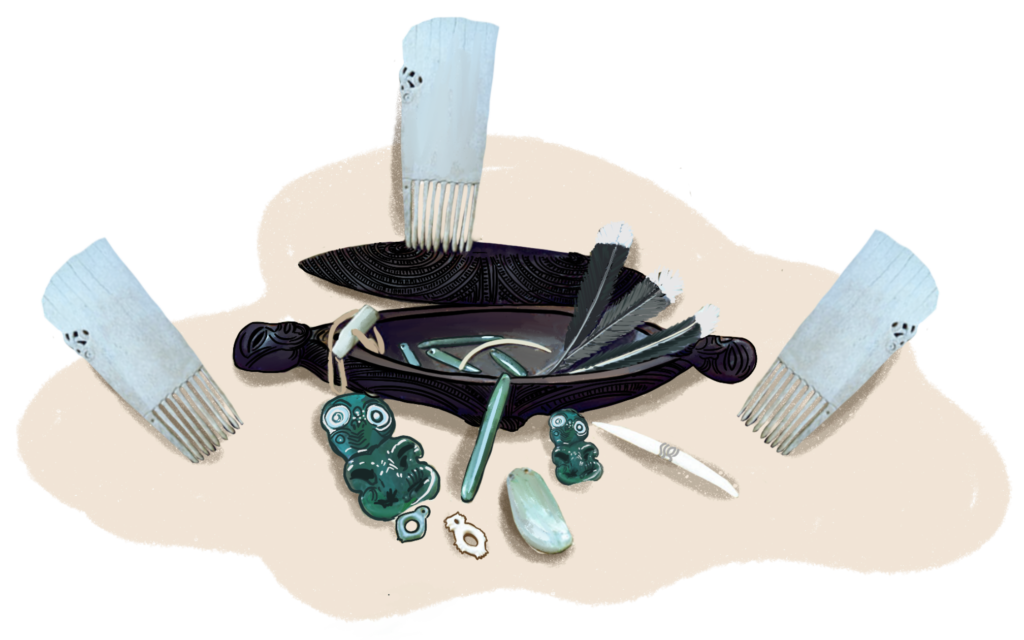
How it works
The following steps outline the process for setting up your community server and tribal archive
1. Setup a community server
One piece of infrastructure required to onboard your community to Āhau is a community database server. To set up your community database server you will need to download and install the Pataka application on a computer and set up port forwarding to the Pataka application by configuring your router.
There is a written step-by-step guide to help you through this process.
2. Download and install
Once you have the community server setup, you can find the links and instructions to download and install the application on a windows, mac or linux operating system here
This does currently limit Āhau users to those who have a personal computer however more development is underway of the mobile application, and supporting users of shared computers.
3. Creating your profile and syncing with your community server
After opening the application you will be prompted to create a personal profile and connect to a Pataka. This is your community server. This will sync an encrypted copy of your database with the community server and enable sharing information with other community members. Please follow this guide for detailed instructions.
4. Setting up your tribe
Once you have created your profile and connected to your community server you are now ready to set up your Tribe. See these detailed instructions for creating and setting up your community.
5. Start your archive by creating stories, genealogy
records, and collections
Now that you have your community set up, you can start to record some information into your archive. See these docs for adding new stories, genealogies, and collections.
6. Invite community members to join your tribal archive
Now that you have some records in your archive it’s time to invite your community to read, learn and/or contribute to the tribal archive. See these docs for inviting community members to your tribe.
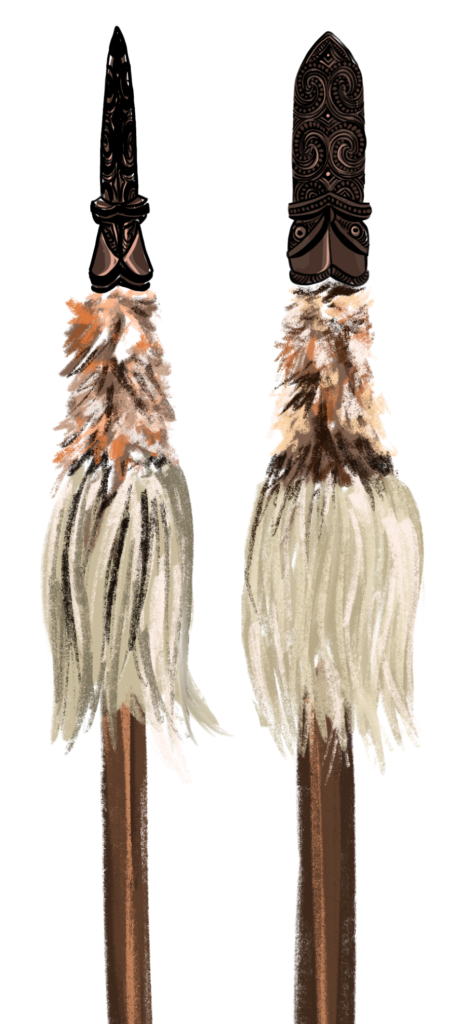
How to get started
To get started with Āhau visit https://docs.ahau.io. Here you will find all the above guides and more, including the download links.
If you have any questions or you would like some support with the setup process please get in contact with the Āhau team via chat channel https://chat.ahau.io. They would love to hear from you.
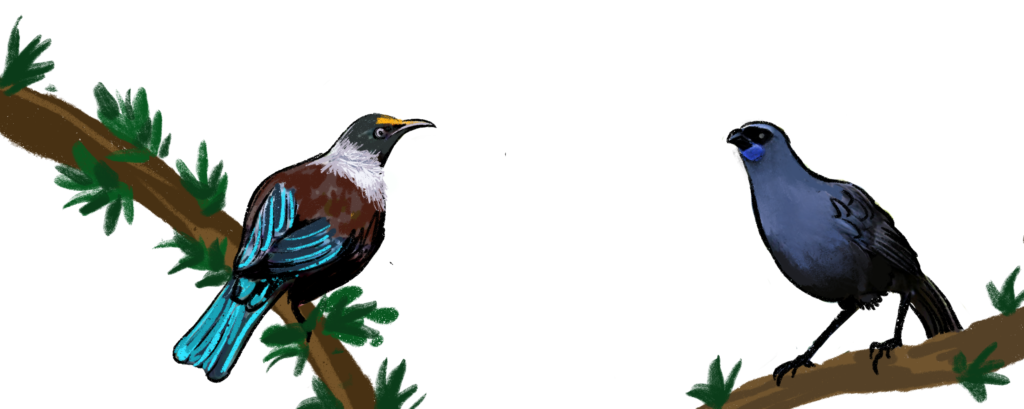
Examples of how Āhau is used
Developing Tribal Archives
In Aotearoa New Zealand a number of Māori communities have engaged their historians, knowledge holders, and community members to develop their digital collections. Digitizing old records, conducting elder interviews, and writing up important histories. They have started a community resource that members can visit and contribute to into the future.
Reconnecting people with their land
Many Māori land trusts have to manage some thousands of shareholders. This creates a number of challenges around maintaining contact information, successions and up-to-date records. A whenua trust in Tauranga is using the genealogy charts to match against their records to help identify lost shareholders and beneficiaries or their living relatives.
Coordinating a community
A community in the Cook Islands is using Āhau’s genealogy and community database features to identify and connect with tribal members online, and coordinate land meetings. The stories and research that are arising from the community work are also being recorded into the tribal archive to keep a record of community actions and stories for current and future community members.
Specs
Software requirements:
Currently only available on personal computers running a Windows, Mac or Linux operating system.
Security:
Uses end-to-end Encryption to keep personal and community information private, and runs on a distributed peer-to-peer database to further restrict access and provide data resiliency.
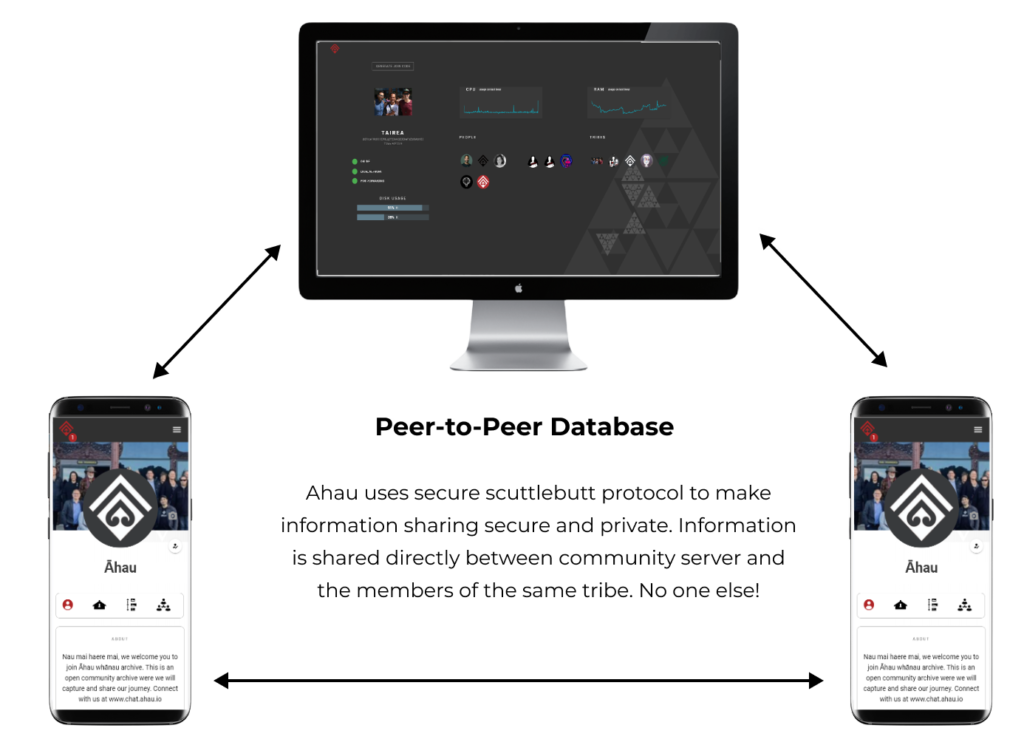
Main features:
Build tribal genealogy charts, Setup cultural archives, and keep track of community members with a tribal registry.
Languages:
The application is mostly in English but some work has been done to translate into Māori and Portuguese. Translation work is still in progress. If you would like to translate Ahau into your own language, this can be done. Please get in touch with the Ahau team via info@ahau.io and they can support you with this.
Media:
Can add photos, videos, audio and files including but not limited to, docs, spreadsheets, powerpoints, pdf’s, and zip-compressed files.
Import options:
CSV for genealogy charts and community database.
Export options:
CSV or SVG for genealogy charts and community database. All information is stored on each user’s device (based on their storage settings).
Technology Stack:
Āhau is open source and has been built with Vue, Graphql, Node, and SSB. If you are interested in contributing to Ahau or making customisations for your community please get in touch with the team via info@ahau.io.
